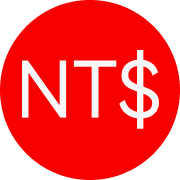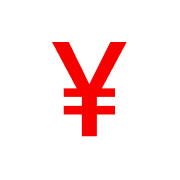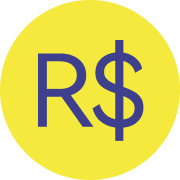


GBP information
About the Pound Sterling (GBP)
What Is the Pound Sterling (GBP)?
The Pound Sterling, commonly known as the sterling or pound and abbreviated as GBP, is the national currency of the United Kingdom (including England, Scotland, Wales, and Northern Ireland), the Isle of Man, South Sandwich Islands, Gibraltar, South Georgia, and the British Antarctic Territory. It holds the distinction of being the oldest currency still in continuous use today. The symbol for the pound is £, and it is divided into 100 smaller units called pence.
GBP is the fourth most traded currency in the foreign exchange market, following the US dollar, the euro, and the Japanese yen. It is also part of the basket of currencies used by the International Monetary Fund (IMF) to calculate its special drawing rights. The Bank of England, the central bank of the UK, is responsible for issuing and regulating the pound. While banknotes are issued in England and Wales by the Bank of England, Scotland and Northern Ireland have their own banknotes, which are not governed by the Bank of England but are accepted throughout the UK.
What Is the History of GBP?
The term "pound sterling" originates from the Latin word "libra," denoting balance and weight. The pound coin was first introduced in 1489 during the reign of Henry VII. The Bank of England, established in 1694, began issuing pound notes shortly thereafter. These notes were initially handwritten. The pound operated in a complex system of shillings and pennies until 1971 when the decimal system was adopted. The UK allowed the pound to float freely in the currency market in 1971, letting market forces determine its value. Despite the introduction of the euro in 2002, the UK chose to retain the pound as its currency.
Notes and Coins of GBP
The pound sterling is available in various denominations. Banknotes are issued in £5, £10, £20, and £50 denominations, with some being printed on polymer for durability. Coins are minted in 1p, 2p, 5p, 10p, 20p, 50p, £1, and £2 denominations.
What Is a Quid?
"Quid" is a slang term commonly used in the United Kingdom to refer to the British pound sterling (GBP), the currency of the United Kingdom. Its exact origin is unclear, but the most accepted theory is that it derives from the Latin phrase "quid pro quo," meaning "something for something," often used in financial and legal contexts. Another less substantiated theory links it to the Royal Mint in Quidhampton, Wiltshire. Over time, "quid" has become synonymous with "pound" in everyday British vernacular, used in the same informal manner as "bucks" is for dollars in the United States. Notably, the term remains singular regardless of the amount, so one would say "twenty quid" instead of "twenty quids."
Why Is GBP Worth More Than USD?
The British Pound (GBP) often holds a higher value than the US Dollar (USD) due to a combination of historical, economic, and market factors, rather than a direct reflection of the respective economies' strength. Historically, the GBP was the dominant currency in foreign exchange, with £1 fetching more than $5 before World War I. As of January 2024, the GBP continued to exhibit strength, maintaining a value of over 1.25 USD. This resilience is evident even after significant events like the 2007–2009 financial crisis, where the GBP peaked at just over 2.00 USD but later stabilized to 1.40–1.45. The impact of Brexit in 2016 further influenced this dynamic, causing a sharp fall in the GBP from the 1.40–1.45 range to 1.20–1.25, and reaching a 30-year low of about $1.05 in September 2022. This trend reflects the relative economic conditions of the UK and the US, with the UK facing challenges from Brexit and the US economy showing improvement. The total circulation of GBP is also much lower than that of USD, contributing to its higher nominal value.
GPTG to GBP conversion rate trend
Conversion rate comparison of various exchanges
How to buy GPT Guru



Buy GPTG (or USDT) for GBP (Pound Sterling) offers
| Merchants (trades/completion rate) | Price | Amount/limit Low to high | Payment methods | Zero fees Action |
|---|
Sell GPTG (or USDT) for GBP (Pound Sterling) offers
| Merchants (trades/completion rate) | Price | Amount/limit High to low | Payment methods | Zero fees Action |
|---|
What factors influence the conversion rate of GPT Guru to Pound Sterling?
GPT Guru to Pound Sterling is rising this week.Conversion tables
The exchange rate of GPT Guru is increasing.GPTG to GBP
GBP to GPTG
Today vs. 24 hours ago
| Amount | 17:21 today | 24 hours ago | 24h change |
|---|---|---|---|
| 0.5 GPTG | $0.00 | $0.{5}1476 | -1.20% |
| 1 GPTG | $0.00 | $0.{5}2953 | -1.20% |
| 5 GPTG | $0.00 | $0.{4}1476 | -1.20% |
| 10 GPTG | $0.00 | $0.{4}2953 | -1.20% |
| 50 GPTG | $0.00 | $0.0001476 | -1.20% |
| 100 GPTG | $0.00 | $0.0002953 | -1.20% |
| 500 GPTG | $0.00 | $0.001476 | -1.20% |
| 1000 GPTG | $0.00 | $0.002953 | -1.20% |
Today vs. 1 month ago
| Amount | 17:21 today | 1 month ago | 1M change |
|---|---|---|---|
| 0.5 GPTG | $0.00 | $-0.{4}4511 | +59.32% |
| 1 GPTG | $0.00 | $-0.{4}9022 | +59.32% |
| 5 GPTG | $0.00 | $-0.0004511 | +59.32% |
| 10 GPTG | $0.00 | $-0.0009022 | +59.32% |
| 50 GPTG | $0.00 | $-0.004511 | +59.32% |
| 100 GPTG | $0.00 | $-0.009022 | +59.32% |
| 500 GPTG | $0.00 | $-0.04511 | +59.32% |
| 1000 GPTG | $0.00 | $-0.09022 | +59.32% |
Today vs. 1 year ago
| Amount | 17:21 today | 1 year ago | 1Y change |
|---|---|---|---|
| 0.5 GPTG | $0.00 | $-0.0001212 | 0.00% |
| 1 GPTG | $0.00 | $-0.0002423 | 0.00% |
| 5 GPTG | $0.00 | $-0.001212 | 0.00% |
| 10 GPTG | $0.00 | $-0.002423 | 0.00% |
| 50 GPTG | $0.00 | $-0.01212 | 0.00% |
| 100 GPTG | $0.00 | $-0.02423 | 0.00% |
| 500 GPTG | $0.00 | $-0.1212 | 0.00% |
| 1000 GPTG | $0.00 | $-0.2423 | 0.00% |
GPT Guru price prediction
What will the price of GPTG be in 2026?
What will the price of GPTG be in 2031?
Other crypto price predictions
 Bitcoin(BTC)Price predictions
Bitcoin(BTC)Price predictions Ethereum(ETH)Price predictions
Ethereum(ETH)Price predictions Celestia(TIA)Price predictions
Celestia(TIA)Price predictions Solana(SOL)Price predictions
Solana(SOL)Price predictions Worldcoin(WLD)Price predictions
Worldcoin(WLD)Price predictions Bittensor(TAO)Price predictions
Bittensor(TAO)Price predictions Dogecoin(DOGE)Price predictions
Dogecoin(DOGE)Price predictions PepeCoin(PEPECOIN)Price predictions
PepeCoin(PEPECOIN)Price predictions Pandora(PANDORA)Price predictions
Pandora(PANDORA)Price predictions ORDI(ORDI)Price predictions
ORDI(ORDI)Price predictionsBitget Earn
APR
Purchase other cryptocurrencies with similar market cap
Popular GPT Guru conversions










Popular cryptocurrencies to GBP










Discover more cryptocurrencies
Latest coin listings on Bitget
FAQ
What is a cryptocurrency calculator?
How does a cryptocurrency calculator work?
How accurate is a cryptocurrency calculator?
Can I trust the results of a cryptocurrency calculator?
Can I use a cryptocurrency calculator for tax purposes?
Can a cryptocurrency calculator be used to convert one type of cryptocurrency to another?






































